Veteran BJP leader Lal Krishna Advani admitted to Apollo hospital in Delhi
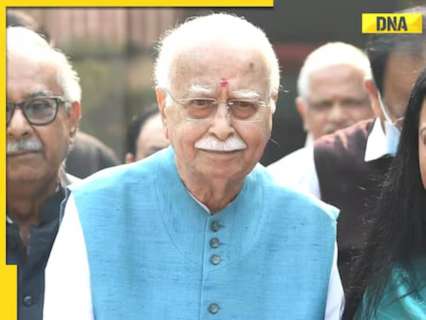
BJP stalwart and former Deputy Prime Minister Lal Krishna Advani was admitted to Apollo Hospital in New Delhi on Friday, as his health deteriorated.
Delhi temperature drops to 7 degrees, air quality remains in ‘poor’ category
The national capital continued to grapple with poor air quality on Saturday morning, with the Air Quality Index (AQI) recorded at 212, as per the Central Pollution Control Board (CPCB) .
US citizen imprisoned in Syria has been released and flown to Jordan
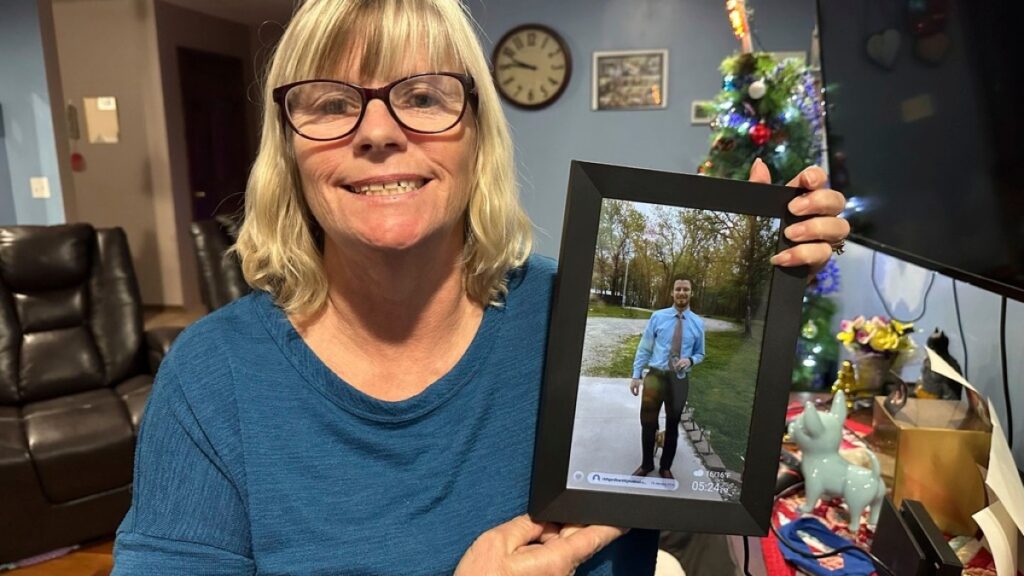
Travis Timmerman, 29, was imprisoned in Syria after crossing into the country on a Christian pilgrimage in June. United States officials have revealed that Travis Timmerman, a 29-year-old US citizen who disappeared into the Syrian prison system seven months ago, has been released and taken out of the country. Citing unnamed government sources, the news agencies Reuters and The Associated Press reported on Friday that Timmerman had been flown to Jordan to meet with US officials. Timmerman had been missing since June, after he crossed into Syria near the eastern Lebanese town of Zahle. Once in the country, he had been imprisoned under the government of Syrian President Bashar al-Assad. But in recent weeks, Syrian opposition forces, led by the Hayat Tahrir al-Sham rebel group, pushed southwards in a lightning offensive, capturing major government strongholds and toppling al-Assad’s administration. On December 8, al-Assad fled to Russia, ending more than a half-century of his family’s rule. Timmerman’s release comes as prisoners throughout the al-Assad government’s notorious prison system are set free. For years, organisations like Human Rights Watch have chronicled reports of widespread torture, starvation and disease inside the detention facilities, leading to deaths in government custody. Advertisement Some Syrians have reportedly spent years, even decades, inside the facilities’ walls, with no contact with the outside world. Timmerman, however, told The Associated Press on Friday that he was not treated poorly in the Syrian prison where he was held, known as the Palestine Branch. He explained he was captured while on a Christian pilgrimage. A US official told Reuters that Timmerman had been transported to the al-Tanf military garrison in Syria, which is located near the border with Jordan and Iraq. From there, he was flown via helicopter to a second US military base in Jordan. While in prison, Timmerman says that he had a mattress, a plastic drinking container and another two containers to dispose of waste. In videos shared shortly after his release, Timmerman indicated that rebels had used a hammer to break down his cell door and free him. It is unclear where he will go next. The AP reported that Timmerman thanked those who released him from prison but told US officials he hopes to remain in the Middle East. The US continues to search for Austin Tice, a former US marine and freelance journalist who was kidnapped while reporting near the capital of Damascus in August 2012. Tice had been among the first US reporters on the ground in Syria, after the pro-democracy “Arab Spring” protests of 2011 sparked a brutal government crackdown and eventually a civil war. In the days since al-Assad’s fall, videos documenting the appalling conditions in the government prison system have been widely shared. Scores of people have also trekked to the facilities, hoping to find friends or loved ones who were detained or disappeared long ago. Advertisement Describing conditions at the Sednaya Prison near Damascus, Raed al-Saleh — the director of Syria’s Civil Defence organisation, known as the White Helmets — called the facility a “hell”. White Helmet rescuers have been combing the facility to document human rights violations and free the people inside. Al-Saleh told Al Jazeera on Monday he believed executions were happening daily within the prison walls. “It is a human slaughterhouse where human beings are being slaughtered and tortured,” al-Saleh said. Adblock test (Why?)
Will South Korea’s President Yoon survive second impeachment motion?
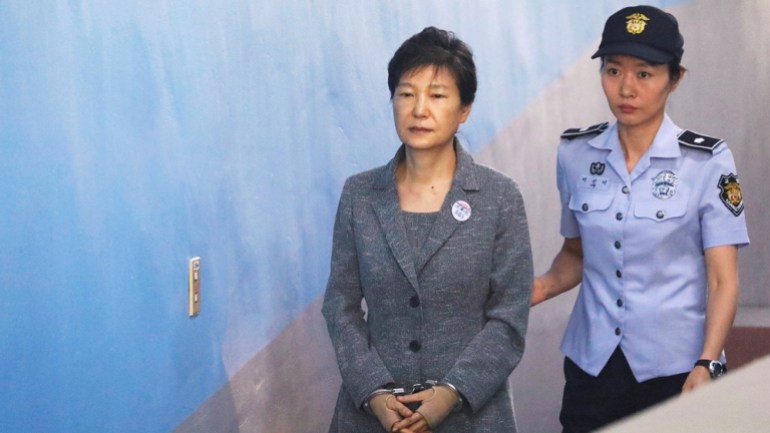
Seoul, South Korea – South Korean President Yoon Suk-yeol is set to face a second impeachment motion in the National Assembly on Saturday, just a week after a previous attempt by the political opposition fell short. The stakes are high following Yoon’s controversial declaration of martial law on December 3, which triggered nationwide protests and heightened uncertainty for Asia’s fourth-largest economy. For the latest impeachment motion to succeed, it must secure at least 200 votes – a two-thirds majority – in South Korea’s 300-seat National Assembly. The opposition bloc holds 192 seats, leaving it eight votes short of the number required. However, in recent days, a small yet growing number of legislators from Yoon’s governing People Power Party have openly supported the motion, making impeachment increasingly more likely. In a defiant televised address on Thursday, Yoon dismissed the idea of voluntary resignation, stressing, “Whether they impeach me or investigate me, I will stand firm.” Advertisement What happens if Yoon is impeached? If the National Assembly passes the impeachment motion, a series of legal and constitutional processes will unfold, starting with the official delivery of the impeachment resolution from the National Assembly to the President’s Office and the Constitutional Court. From that moment, Yoon’s presidential powers will be suspended. He will still retain the title and some privileges associated with the presidency, including the presidential residence, and continued security protection. During this period, South Korea’s prime minister will assume the role of acting president under Article 71 of the Constitution. However, the opposition is also considering impeaching Prime Minister Han Duck-soo in connection with his possible role in the martial law declaration. If Han is impeached, too, the deputy prime minister for the economy would take over as acting president. The acting president will handle essential duties such as military command, issuing decrees, and managing state matters. While the Constitution does not clearly limit the scope of an acting president’s authority, precedent suggests powers should be limited to maintaining the status quo rather than initiating major policy changes. Review at the Constitutional Court The impeachment process then moves to the Constitutional Court, where justices will review the case to determine whether Yoon’s removal is justified. At least six out of the nine justices must support the motion for it to be upheld. Advertisement However, only six justices currently sit on the bench, meaning Yoon needs just one supportive ruling to survive the impeachment attempt. The three vacant seats are positions that the National Assembly can nominate. While legislators are now rushing to fill those seats, the president has the final authority to approve the appointments, raising the possibility of delays or rejections. The court is required to issue its decision within 180 days of receiving the case. The Constitutional Court took 63 days to rule on former President Roh Moo-hyun’s impeachment in 2004 and 91 days for former President Park Geun-hye’s case in 2016. South Korea’s removed President Park Geun-hye arrives at a court in Seoul, South Korea, in August 2017 [File: Kim Hong-ji/Reuters] Yoon’s potential legal defence Yoon’s speech on Thursday appeared to preview his defence strategy should the case reach the Constitutional Court. He is likely to argue that declaring martial law was within his constitutional powers and did not constitute an illegal act or an insurrection. He framed the martial law declaration as a “highly political decision” falling under the president’s powers, which are “not subject to judicial review”. Yoon insisted that his decision was an “emergency appeal to the public” amid what he described as a severe political crisis, which he blamed on the opposition-controlled National Assembly. Constitutional Court’s ruling If the court upholds the impeachment, Yoon will be removed from office. Advertisement He will lose privileges afforded to former presidents, such as pensions and personal aides, though he will continue to receive security protection. A presidential election must then be held within 60 days to elect a new leader. If the impeachment is rejected, Yoon will be reinstated as president and resume his duties. Separate investigations Even if he survives the second impeachment bid, Yoon still faces criminal investigations. Although a sitting president enjoys immunity from criminal prosecution, this protection does not extend to charges of insurrection. Multiple investigative agencies, including the police, the prosecution, and the Corruption Investigation Office for High-ranking Officials, are investigating senior officials and military commanders on charges of insurrection. This means that Yoon could potentially be arrested, which would mark the first such case involving a sitting president in South Korea. Adblock test (Why?)
Singapore steps up executions and pressure on anti-death penalty groups
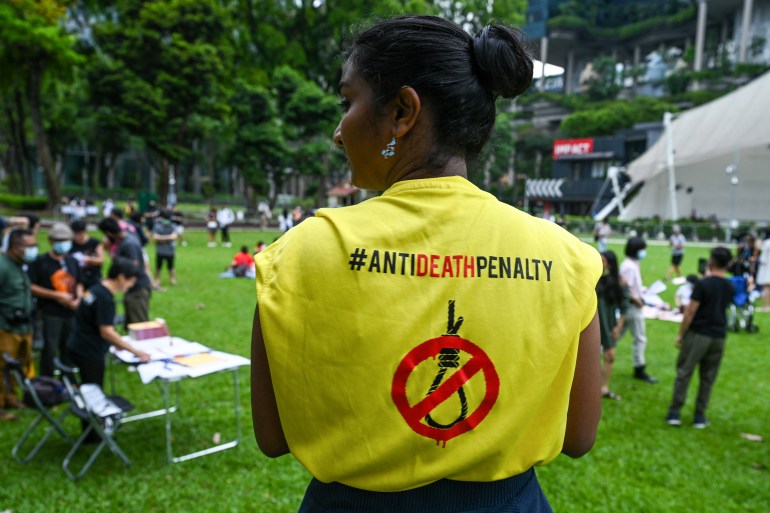
Singapore – Masoud Rahimi Mehrzad’s father was in a remote part of Iran when he received the news that he had long dreaded. His son was to be hanged in Singapore’s Changi Prison. Suffering from deteriorating health and with just a week’s notice until the execution at dawn on November 29, he was unable to take on the demanding trip to see his son in person for one last time, according to reports. Instead, the final contact between the father and son came via a long-distance phone call. Despite a last-ditch legal challenge, Masoud was hanged on the final Friday of November, more than 14 years after he was first arrested for drug offences. Masoud, 35, became the ninth person to be hanged in Singapore this year. “With four executions in November alone, the Singaporean government is relentlessly pursuing its cruel use of the death penalty,” said Bryony Lau, Deputy Director for Asia at Human Rights Watch. Anti-death penalty campaign groups believe that about 50 inmates are currently on death row in Singapore. Advertisement Despite opposition from prominent human rights groups and United Nations experts, Singapore claims that capital punishment has been “an effective deterrent” against drug traffickers and ensures the city-state is “one of the safest places in the world”. A group of UN experts said in a joint statement last month that Singapore should “move from a reliance on criminal law and take a human rights-based approach in relation to drug use and drug use disorders”. An anti-death penalty activist takes part in a rally against the death sentence at Speakers’ Corner in Singapore in April 2022 [File: Roslan Rahman/AFP] Stories of the plight of death row inmates generally come from activists, who work tirelessly to fight for the rights of those facing the ultimate punishment. The recent wave of executions has now left them shaken. “It’s a nightmare,” says Kokila Annamalai, a prominent anti-death penalty campaigner with the Transformative Justice Collective (TJC). Her work has led her to form a close bond with many death row prisoners. “They’re more than just people we are campaigning for. They’re also our friends, they feel like our siblings. It’s been very difficult for us personally,” Annamalai told Al Jazeera. ‘Losing another son, he couldn’t accept it’ Like almost all of Singapore’s prisoners on death row, Masoud was convicted for drug offences. Born in Singapore to an Iranian father and Singaporean mother, he had spent his childhood between Iran and Dubai. At the age of 17, he returned to Singapore to complete his compulsory national service and it was during this period in his life that he was arrested on drug charges. In May 2010, aged 20, he drove to meet a Malaysian man at a petrol station in central Singapore. Masoud took a package from the man, before driving away. He was soon stopped by the police. They searched the package and some other bags that they found in the car. Advertisement In total, officers discovered more than 31 grams of diamorphine, which is also known as heroin, and 77 grams of methamphetamine. Masoud was arrested for possessing drugs with the purpose of trafficking. Under Singapore’s strict laws, anyone caught carrying more than 15 grams of heroin can face the death penalty. Masoud told police that he was suffering from post-traumatic stress disorder and anxiety. He also blamed an illegal money-lending syndicate for planting the drugs in order to frame him. His defence did not stand up in court and he was sentenced to death in 2015. Masoud Rahimi Mehrzad [Photo courtesy of Transformative Justice Collective] Masoud’s sister, Mahnaz, released an open letter shortly before her brother was hanged last month. She described the pain that the death sentence had inflicted on their father. “My dad was completely heartbroken, and he has never recovered. One of my brothers died when he was 7 years old, from appendicitis … losing another son, he couldn’t accept it,” she wrote. Masoud had fought tirelessly to appeal his conviction, but his numerous legal challenges failed, as did a plea for clemency to Singapore’s President Tharman Shanmugaratnam. Before his own execution, Masoud’s sister recounted how her brother had dedicated his time on death row to helping other prisoners with their own legal battles. “He’s very invested in helping them find peace,” Mahnaz said. “He feels it’s his responsibility to fight for his life as well as the others, and he wishes for everyone on death row to feel the same motivation, to be there for each other,” she said. Advertisement ‘People start to care deeply’ In October, Masoud was one of 13 death row prisoners who won a case against the Singapore Prison Service and the Attorney General ‘s Chambers, after they were deemed to have acted unlawfully by disclosing and requesting the private letters of prisoners. The court also found that the prisoners’ right to confidentiality had been breached. Masoud was also due to represent a group of 31 prisoners in a constitutional challenge against a new law relating to the post-appeal process in death penalty cases. A hearing in that legal challenge is still scheduled for late January 2025, a date that is now too late for Masoud. Singapore’s Central Narcotics Bureau said the fact that Masoud’s execution was carried out in advance of the upcoming high court hearing was “not relevant to his conviction or sentence”. After a two-year pause due to the COVID-19 pandemic, executions have ramped up in recent years in the Southeast Asian finance hub. According to news reports, 25 prisoners have been executed in Singapore since 2022, with the authorities showing little prospect of softening their approach to capital punishment for drug traffickers. An activist lights candles for death row inmate Tangaraju Suppiah during a vigil for him in Singapore in April 2023. Suppiah was executed on April 26, 2023 [File: How Hwee Young/EPA] Anti-death penalty campaigners in the city-state continue to voice their outrage at the government’s actions, using social media to amplify the personal stories
Atul Subhash suicide: Accenture, its CEO, restrict public access to their X profiles amid his wife Nikita Singhania’s..
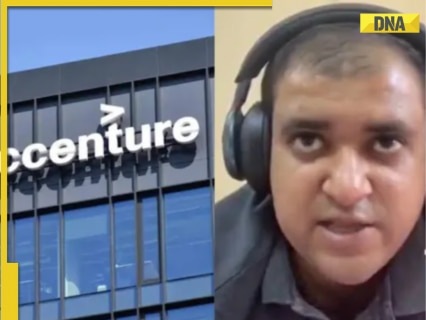
Following Atul Subhash’s suicide, numerous users took to X to demand that Accenture terminate the employment of his wife Nikita Singhania, alleging that her actions led to his suicide. Amid this, the company and its CEO have locked their X profiles.
‘Disinformation’: India denies reports of visa denial to pro-Khalistani individuals in Canada
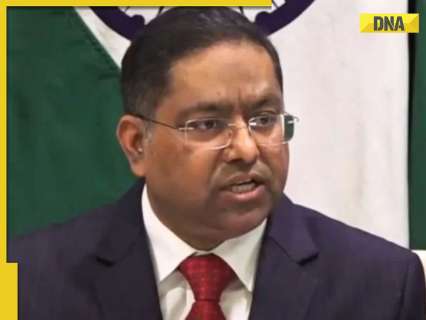
India’s Ministry of External Affairs responds to visa denials, Indian student safety concerns in Canada, and the evacuation of nationals from Syria.
Watch: Pushpa 2 star Allu Arjun gets released from jail; Allu Aravind, Kancharla Chandrasekhar Reddy receive him

Allu Arjun’s family members including father Allu Arvind and father-in-law Kancharla Chandrasekhar Reddy came to receive him at Chanchalguda Central Jail.
Expanding college financial aid will help Texas meet workforce needs, new higher ed chief says
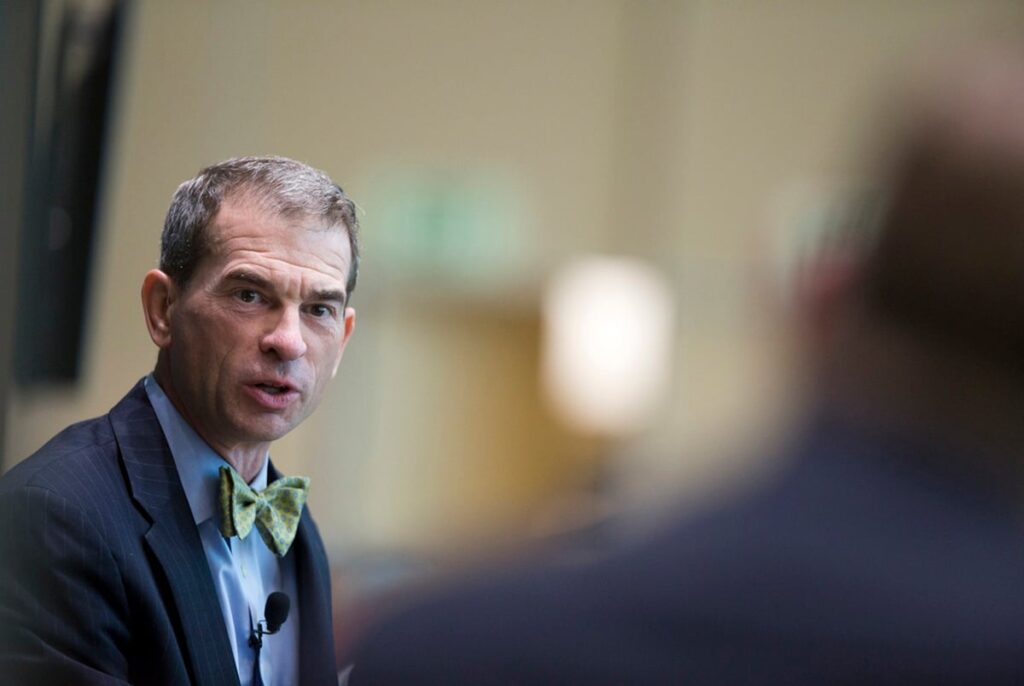
In his new role, Rosser will be responsible for helping Texas meet its goal to increase the number of Texans ages 25 to 34 with a postsecondary credential to 60%by 2030.
US swaps prisoners with China, releasing 3 convicted spies

Two Chinese spies and a Chinese national who was charged for disseminating child pornography were part of a White House prisoner swap as Biden’s presidency nears the end. On Nov. 22, Biden granted clemency to Yanjun Xu, Ji Chaoqun and Shanlin Jin. Their releases were part of a prisoner swap that returned three wrongfully detained Americans from Chinese custody: Mark Swidan, Kai Li, and John Leung. The three Americans returned to the U.S. before Thanksgiving. CHINA DENIES NEW REPORRT LINKING CCP TO FOUR SITES IN CUBA ALLEGEDLY USED TO SPY ON THE US Xu and Chaoqun were both Chinese nationals who were convicted of espionage in the U.S. Xu, according to a release from the Department of Justice, was the first Chinese government intelligence officer ever to be extradited to the United States to stand trial and was sentenced to 20 years. According to court documents, Xu targeted American aviation companies, recruited employees to travel to China, and solicited their proprietary information, all on behalf of the government of the People’s Republic of China (PRC). BIDEN LEAVING OFFICE WITH LOWEST APPROVAL IN 16 YEARS, FOX NEWS POLLING SHOWS In one example, noted in court documents, Xu attempted to steal technology related to GE Aviation’s exclusive composite aircraft engine fan module – which no other company in the world has been able to duplicate – to benefit the Chinese state. The Department of Justice said that Xu openly discussed his effort to steal U.S. military information in addition to commercial aviation trade secrets. Chaoqun was arrested and convicted after working with Xu on behalf of the CCP. The federal agency said that Xu recruited and “handled” Chaoqun, who was stationed in Chicago during the duration of the scheme. The DOJ said that Xu directed Chaoqun to collect “biographical information on people to potentially recruit to work with them.” “Xu’s handling and placement of a spy within the United States to obtain information regarding aviation technology and employees is yet another facet of Xu’s egregious crimes towards the United States and further justifies the significant sentence of imprisonment he received today,” said U.S. Attorney Parker at the time of the pair’s conviction. Jin was serving his sentence after being convicted of possessing more than 47,000 images of child pornography while a doctoral student at Southern Methodist University in Dallas in 2021. Biden commuted on Thursday the sentences of 1,499 people. He is also pardoning 39 individuals who were convicted of non-violent crimes. President-elect Trump is set to take office in a little over a month, on January 20. He has said that he will immediately pardon people convicted of participating in the January 6, 2021, riot in the U.S. Capitol.

